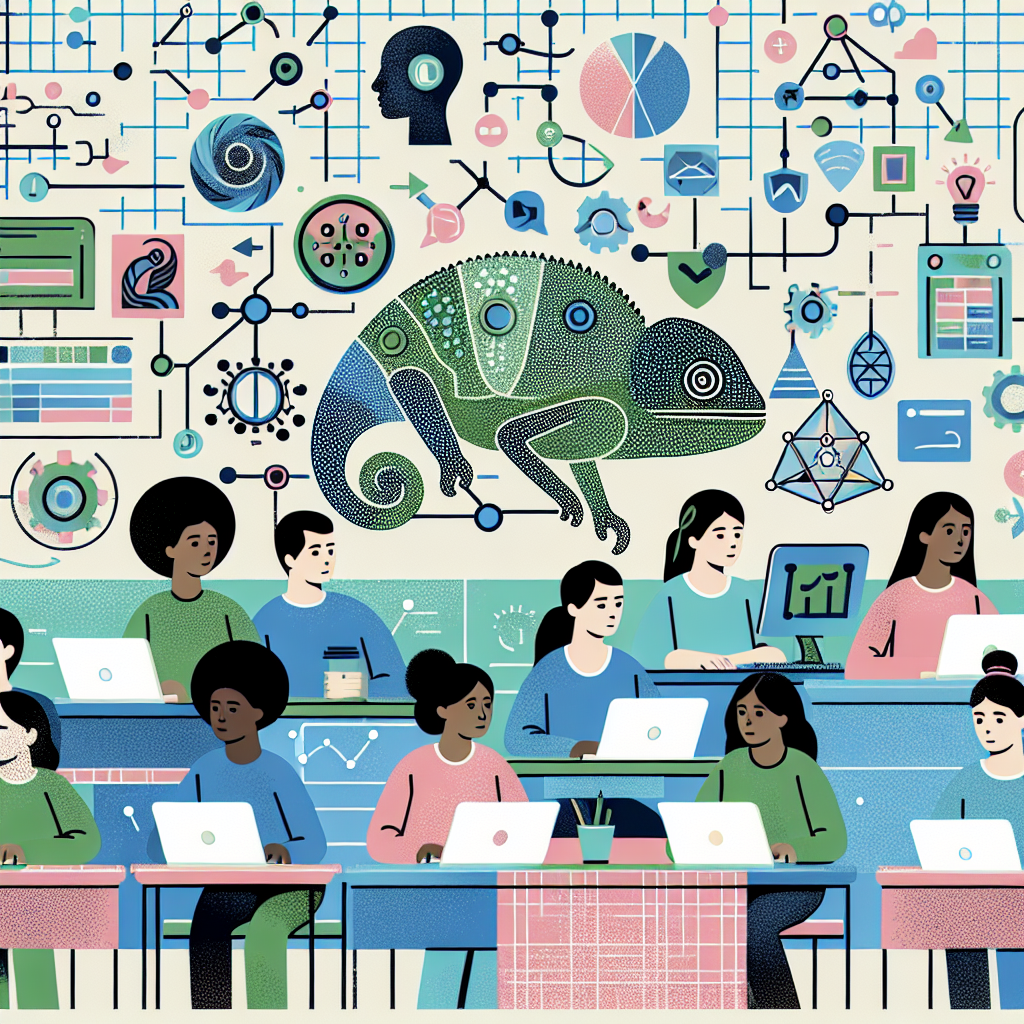Artificial intelligence (AI) has been making significant strides in the field of education, particularly in the area of adaptive learning. Adaptive learning is a method of teaching and learning that uses technology to personalize the learning experience for each student based on their individual needs and abilities. By harnessing the power of AI, educators can create a more personalized and effective learning environment that meets students where they are and helps them reach their full potential.
AI and Adaptive Learning: An Overview
Adaptive learning systems use AI algorithms to analyze students’ performance, preferences, and learning styles to create personalized learning paths. These systems can adapt in real-time to provide students with the right level of support, challenge, and feedback to help them succeed. By using AI to tailor the learning experience to each student’s unique needs, adaptive learning can improve student engagement, motivation, and outcomes.
One of the key benefits of adaptive learning is its ability to provide immediate feedback to students. Traditional classroom settings often rely on periodic assessments to gauge student understanding, which can be time-consuming and may not provide timely feedback to help students improve. With adaptive learning, AI algorithms can assess student performance in real-time and provide immediate feedback and support to help students master concepts and skills more efficiently.
Another advantage of adaptive learning is its ability to offer personalized learning paths for each student. Traditional one-size-fits-all approaches to teaching may not meet the needs of all students, as each student has unique strengths, weaknesses, and learning styles. Adaptive learning systems can analyze students’ performance data to create personalized learning paths that address each student’s individual needs, allowing them to progress at their own pace and focus on areas where they need the most help.
AI-powered adaptive learning systems can also help educators track student progress more effectively. By analyzing large amounts of data on student performance, AI algorithms can provide insights into students’ strengths and weaknesses, allowing educators to identify areas where students may need additional support or intervention. This data-driven approach to teaching and learning can help educators make more informed decisions about how to support students and improve learning outcomes.
FAQs about AI and Adaptive Learning
Q: How does AI adapt to students’ individual needs and abilities in adaptive learning?
A: AI algorithms in adaptive learning systems use data on students’ performance, preferences, and learning styles to create personalized learning paths for each student. These algorithms analyze student data in real-time to provide the right level of support, challenge, and feedback to help students succeed.
Q: How can adaptive learning improve student outcomes?
A: Adaptive learning can improve student outcomes by providing personalized learning paths that address each student’s individual needs. By tailoring the learning experience to each student, adaptive learning can increase student engagement, motivation, and mastery of concepts and skills.
Q: How can adaptive learning systems provide immediate feedback to students?
A: Adaptive learning systems use AI algorithms to assess student performance in real-time and provide immediate feedback and support to help students master concepts and skills more efficiently. This real-time feedback can help students improve their understanding and performance quickly.
Q: How does adaptive learning track student progress?
A: Adaptive learning systems analyze large amounts of data on student performance to provide insights into students’ strengths and weaknesses. This data-driven approach allows educators to track student progress more effectively and make informed decisions about how to support students and improve learning outcomes.
In conclusion, AI-powered adaptive learning has the potential to revolutionize education by providing personalized learning experiences that meet students where they are and help them reach their full potential. By harnessing the power of AI to analyze student data, create personalized learning paths, and provide real-time feedback, educators can create a more engaging, effective, and efficient learning environment that benefits students of all ages and abilities. As AI continues to advance, the possibilities for adaptive learning are endless, and the future of education looks brighter than ever.

